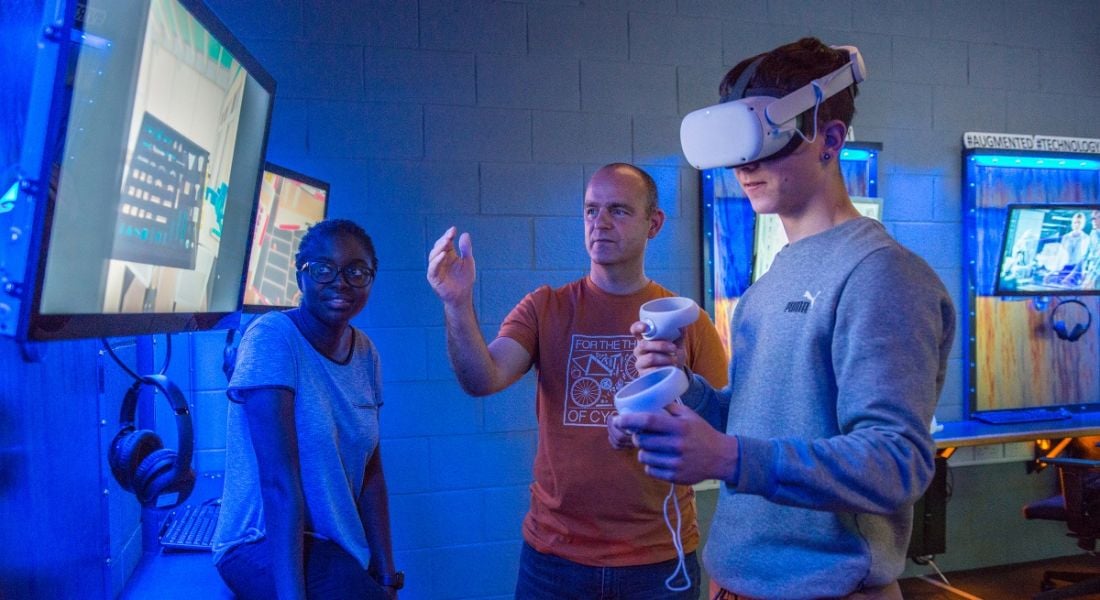There’s a shortage of engineers in Ireland, but the community is well ahead of it. Here, we take a look at its strategies to boost outreach and education.
Last month, the director general of Engineers Ireland warned us all about the urgent need for more engineers.
As the leader of the professional body that represents engineers here, Damien Owens’ warnings are worth heeding. If he says, as he did last month, that some of the infrastructural plans the Government hopes to implement may not happen due to a lack of people to implement them, then surely it is high time the problem is addressed?
As Owens said, “The engineering field is one of the most important in our society. Engineering touches the lives of everyone, providing creative solutions to societal needs from tangible works such as bridges and flood defences, to heart stents and prostheses as well as the invisible technology that is all around us.”
He also pointed out that Ireland’s engineering skills shortage was “nothing new”.
Owens made his remarks about the national engineering skills gap to accompany Engineers Ireland’s first employee survey since the pandemic. That survey found that almost three-quarters of respondents were very concerned about the shortage of skilled engineers.
While this not exactly encouraging, it does at least show that the majority of Irish engineers are aware there is a lack of talent coming onstream.
So, what is the sector doing about this ongoing problem?
Quite a lot, actually. On the frontline of the battle to attract talent is, of course, Engineers Ireland.
Little steps can mean big outreach
It runs an outreach programme called STEPs that focuses on promoting engineering careers to young people. One of its core projects, Engineers Week, has been running all this week. Today (10 March) is the last day of Engineers Week 2023.
The annual festival sees the engineering community across the country come out in their droves to celebrate STEM and show the public how rewarding the career can be.
Young people have seen STEM performers in Dublin, watched documentaries in Galway and got up close and personal with robots in Sligo, to name a few of this year’s events.
But while outreach and fun events helps attract younger children, what about older teenagers and adults?
The key to selling engineering as a career path to them is a little bit more complex. Luckily, the academic and professional engineering community are doing their best to help out here.
Do we need to rethink engineering education?
Leading the way is Munster Technological University’s Rethinking Engineering Education in Ireland (REEDI) consortium.
The group’s membership includes research centres, industry stakeholders and HEIs from Ireland and further afield.
Last June REEDI introduced a new four-year undergraduate engineering course to prepare a pipeline of skilled workers for Ireland’s growing Industry 4.0 scene.
As part of the course, students can intern for companies such as Stryker, Analog Devices, Thermo Fisher, Astellas, Tricel, EPS Group and Johnson & Johnson.
Many of these companies had input in the design of the course, and the placement portion takes up the final 50pc of the course, meaning it is one of the most hands-on in the country.
REEDI has been praised for its approach to engineering education. It was one of 20 educational institutions featured as part of a case study on global leaders in engineering education.
Dr Ruth Graham, a global consultant in higher education, mentioned REEDI in her paper Crisis and Catalyst: The impact of Covid-19 on global practise in engineering education. The paper was published by MIT in October 2022.
REEDI was the only Irish university to be singled out. Dr Fiona Boyle, head of the Department of STEM and director of REEDI said the consortium was “extremely honoured and proud” to have been mentioned in Graham’s paper.
“It is a real sense of validation for the REEDI team. We have worked hard with our industry and project partners to design and develop an engineering programme that will produce engineers of the future,” she said.
“We will give our student engineers the opportunity to learn with cutting-edge technologies and get to gain valuable work experience before they graduate, setting them up for career success. This acknowledgment gives us even more confidence to start a new chapter for engineering education in Ireland; keep pushing the boundaries and driving forward with our vision – to set the agenda for engineering education nationally.”
Members of a civil engineering consortium founded out of ATU to focus on apprenticeships as a solution to the engineering talent shortage. Image: ATU
Apprenticeships and ‘earn and learn’ opportunities are also being put forward as a method of attracting young people to engineering careers.
Since engineering is a practical skill, lots of institutions in Ireland are moving to offer apprenticeships as a way of preparing students for the future.
Apprenticeships as an answer
Atlantic Technological University (ATU) is hoping to bring a series of new apprenticeships programmes to fruition in the coming months. The plan is to roll out programmes at Level 6 and Level 7, with first intakes due by September 2023.
Level 8 and Level 9 programmes will be added in time for the beginning of the 2024 academic year. While ATU will be the lead co-ordinating partner, it is working in close collaboration with other TUs, industry players and Engineers Ireland.
The courses are being funded by the National Apprenticeship Office, and are being developed by a specialist consortium group of civil engineers.
The consortium’s members are confident that the ‘earn and learn’ approach will expedite the process of getting more engineers out to work.
Considering it includes people working with organisations like Irish Water, Transport Infrastructure Ireland, the Local Government Management Agency and the Civil Engineering Contractors Association, it looks as though the industry is largely on board with the apprenticeship model.
As Úna Parsons, head of college at ATU Sligo, pointed out, professional apprenticeships “are a growing alternative to the traditional route to a third-level education qualification and are necessary to attract the scale and diversity of candidates needed into industries such as civil engineering and construction.”
10 things you need to know direct to your inbox every weekday. Sign up for the Daily Brief, Silicon Republic’s digest of essential sci-tech news.




